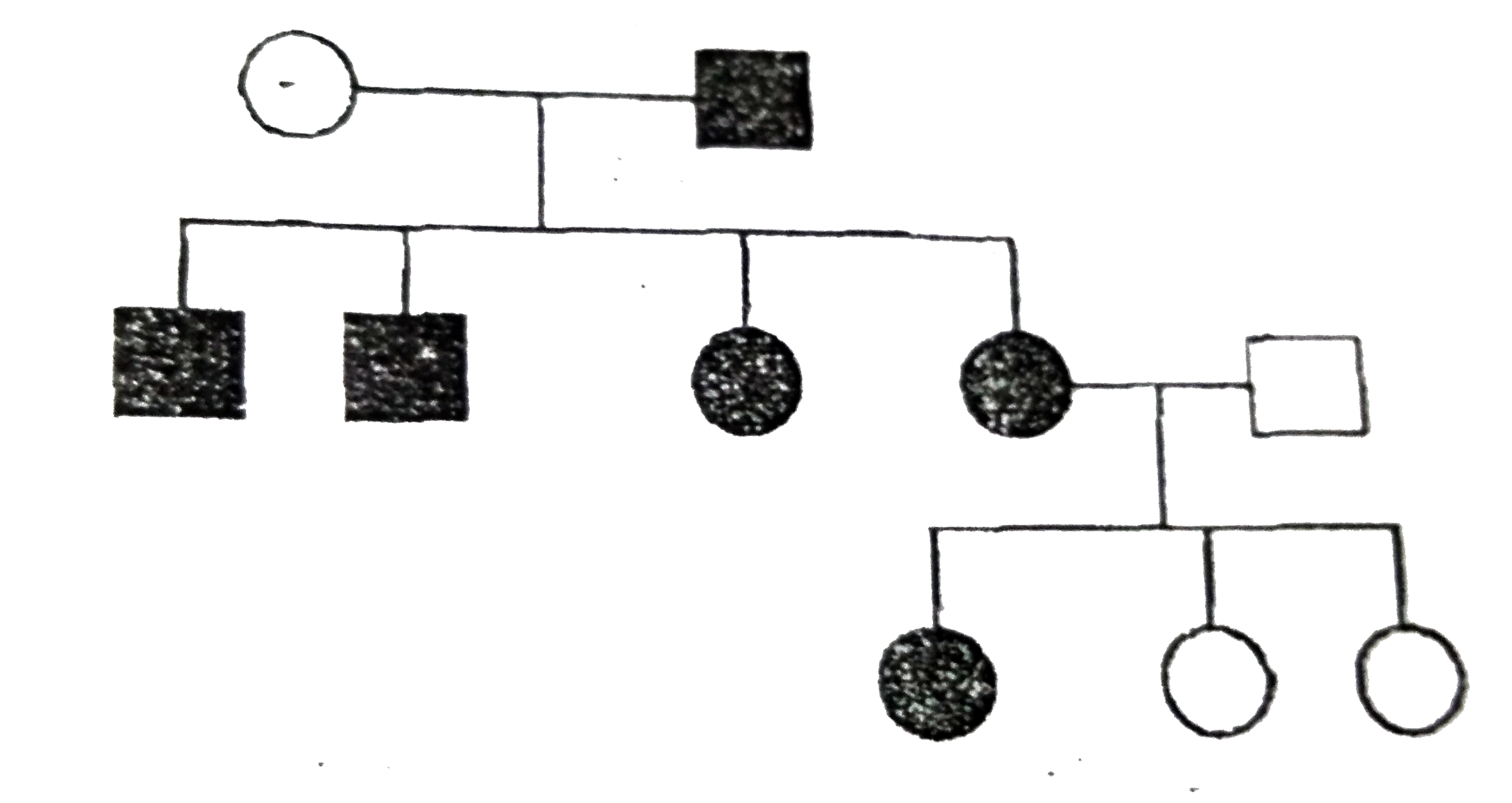Assertion :-The unmodified allele, which represents the orginal phenotype is the dominant allele and the modified allele is generally the recessive allele.
Reason :- The modified allele could be responsible for production of a non functional enzyme or no enzyme at al.
If both Assertion & Reason are True & the Reason is a correct explanation of the Assertion.
If both Assertion & Reason are trur but Reason is not a correct explanation of the Assertion.
If Assertion is True but the Reason is Flase.
If both Assertion & Reason are false.
The correct Answer is:A
Step-by-Step Solution:
1. Understanding the Assertion: The assertion states that the unmodified allele, which represents the original phenotype, is the dominant allele, while the modified allele is generally the recessive allele.
- Explanation: In genetics, alleles can be classified as dominant or recessive. The dominant allele is the one that expresses its trait even when only one copy is present, while the recessive allele only expresses its trait when two copies are present. The unmodified allele typically represents the standard or original trait (phenotype), which is often dominant.
2. Understanding the Reason: The reason given is that the modified allele could be responsible for the production of a non-functional enzyme or no enzyme at all.
- Explanation: Modified alleles often arise from mutations that can lead to a loss of function in the protein they encode. This means that the modified allele may produce a protein that does not work properly (non-functional) or does not produce the protein at all (no enzyme).
3. Evaluating the Truth of the Assertion: The assertion is true because the unmodified allele is indeed often dominant and represents the original phenotype.
- Conclusion: The statement correctly describes the relationship between unmodified and modified alleles.
4. Evaluating the Truth of the Reason: The reason is also true as modified alleles can lead to non-functional enzymes or a complete lack of enzyme production.
- Conclusion: This accurately explains why modified alleles are often recessive, as they may not provide the necessary function that the dominant allele does.
5. Determining the Relationship: Since both the assertion and the reason are true, and the reason correctly explains the assertion, we conclude that both statements are valid and related.
- Final Conclusion: Both the assertion and the reason are true, and the reason is the correct explanation of the assertion.
Final Answer: Both the assertion and the reason are true, and the reason is the correct explanation of the assertion.
---
- Explanation: In genetics, alleles can be classified as dominant or recessive. The dominant allele is the one that expresses its trait even when only one copy is present, while the recessive allele only expresses its trait when two copies are present. The unmodified allele typically represents the standard or original trait (phenotype), which is often dominant.
- Explanation: Modified alleles often arise from mutations that can lead to a loss of function in the protein they encode. This means that the modified allele may produce a protein that does not work properly (non-functional) or does not produce the protein at all (no enzyme).
- Conclusion: The statement correctly describes the relationship between unmodified and modified alleles.
- Conclusion: This accurately explains why modified alleles are often recessive, as they may not provide the necessary function that the dominant allele does.
- Final Conclusion: Both the assertion and the reason are true, and the reason is the correct explanation of the assertion.
Topper's Solved these Questions
- GENETICS & MOLECULAR BASIS OF INHERITANCE AND MUTATIONBOOK - ALLENCHAPTER - GENETICS & MOLECULAR BASIS OF INHERITANCE AND MUTATIONEXERCISE - EXERCISE-III (ANALYTICAL QUESTIONS
85 Videos
- GENETICS BOOK - ALLENCHAPTER - GENETICS EXERCISE - Question
58 Videos
- GENETICS (PRINCIPLES OF INHERITANCE AND VARIATION) (MOLECULAR BASIS OF INHERITANCE)BOOK - ALLENCHAPTER - GENETICS (PRINCIPLES OF INHERITANCE AND VARIATION) (MOLECULAR BASIS OF INHERITANCE)EXERCISE - Question
53 Videos
Similar Questions
Theoretically, the modified allele could be responsible for the production of A. a non functional enzyme B. normal or less effecient enzyme C. No enzyme at all
View SolutionThe ______ allele representing the original phenotype is_________ type and the allele ______ is generally the_______ type/allele.
View Solution
Knowledge Check
The unmodified allele is equivalent to modified allele when it produces:
ANormal enzymeBA non functional enzymeCNo enzyme at allDInactive enzyme
The phenotype of any character will not be affected if the modified allele produces-
View SolutionWhen modified allele is equivalent to the unmodified allelel it will produce...........
View SolutionIn………. Both dominant and recessive alleles lack their dominant and recessive relationships
View SolutionWhen dominant and recessive alleles express themselves together, it is called
View SolutionA single recessive allele which can express its effect should occur on
View SolutionHaploids are able to express both recessive and dominant alleles /mutations because there are :
View SolutionIn the given pedigree, indicate whether the shaded symbols indicate dominant or recessive allele.

View Solution
